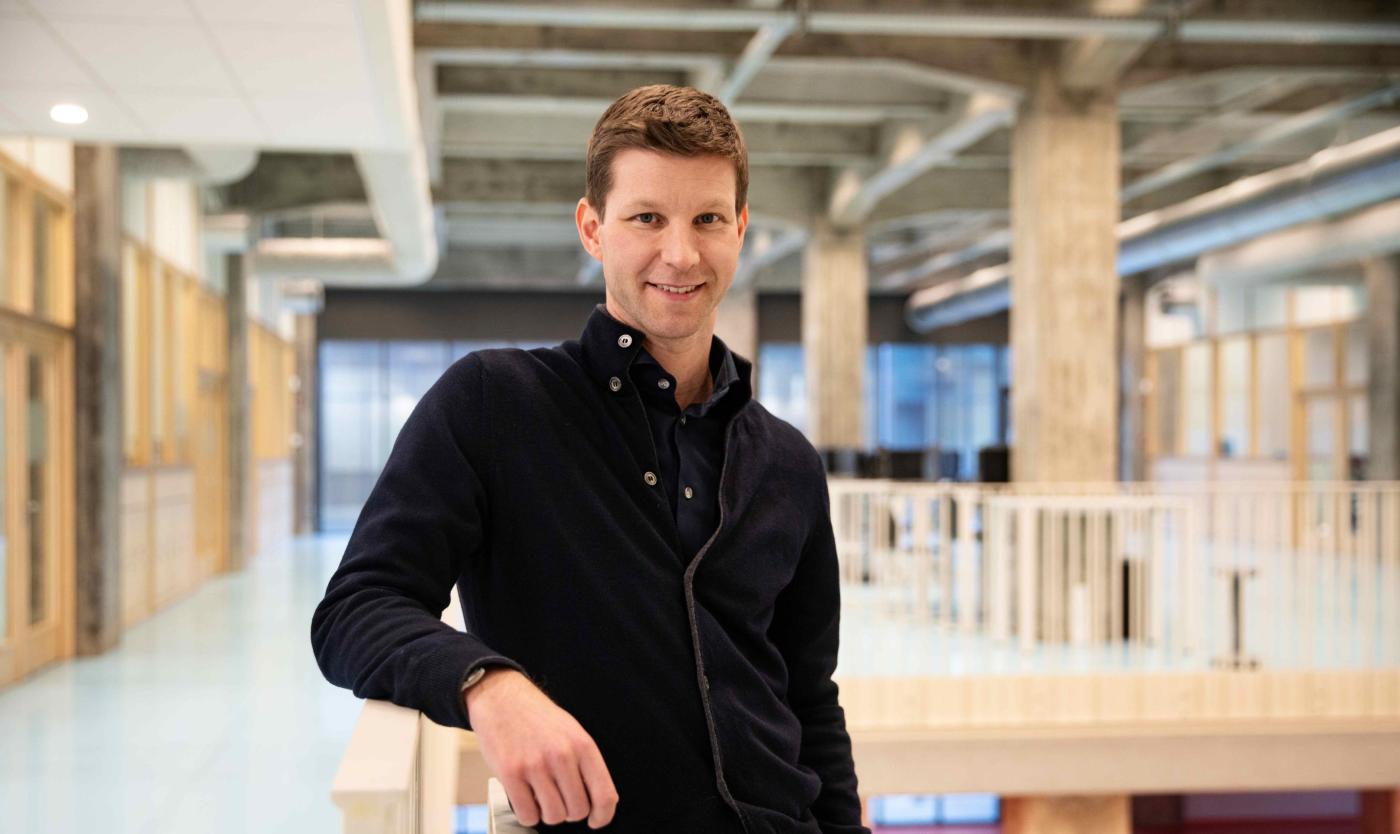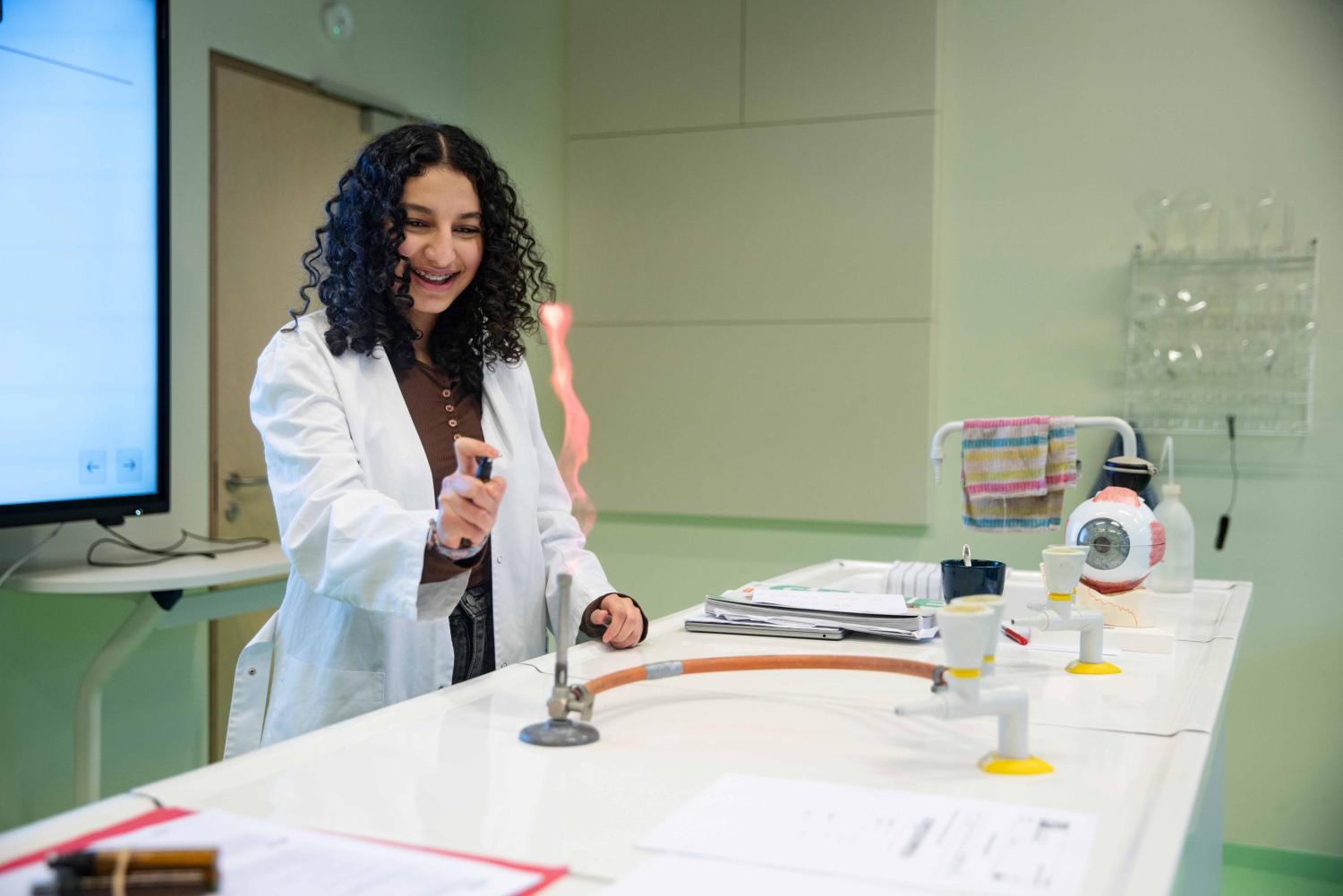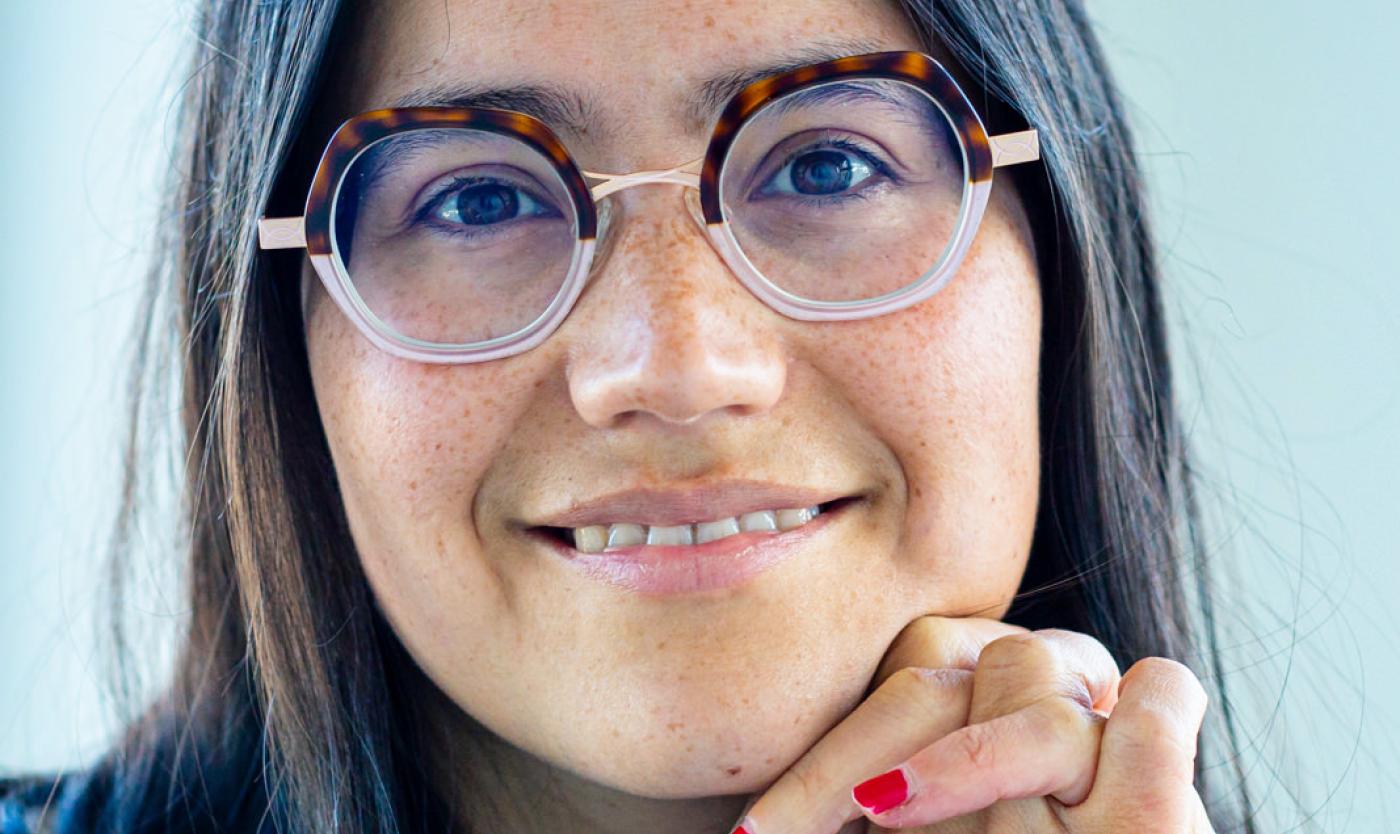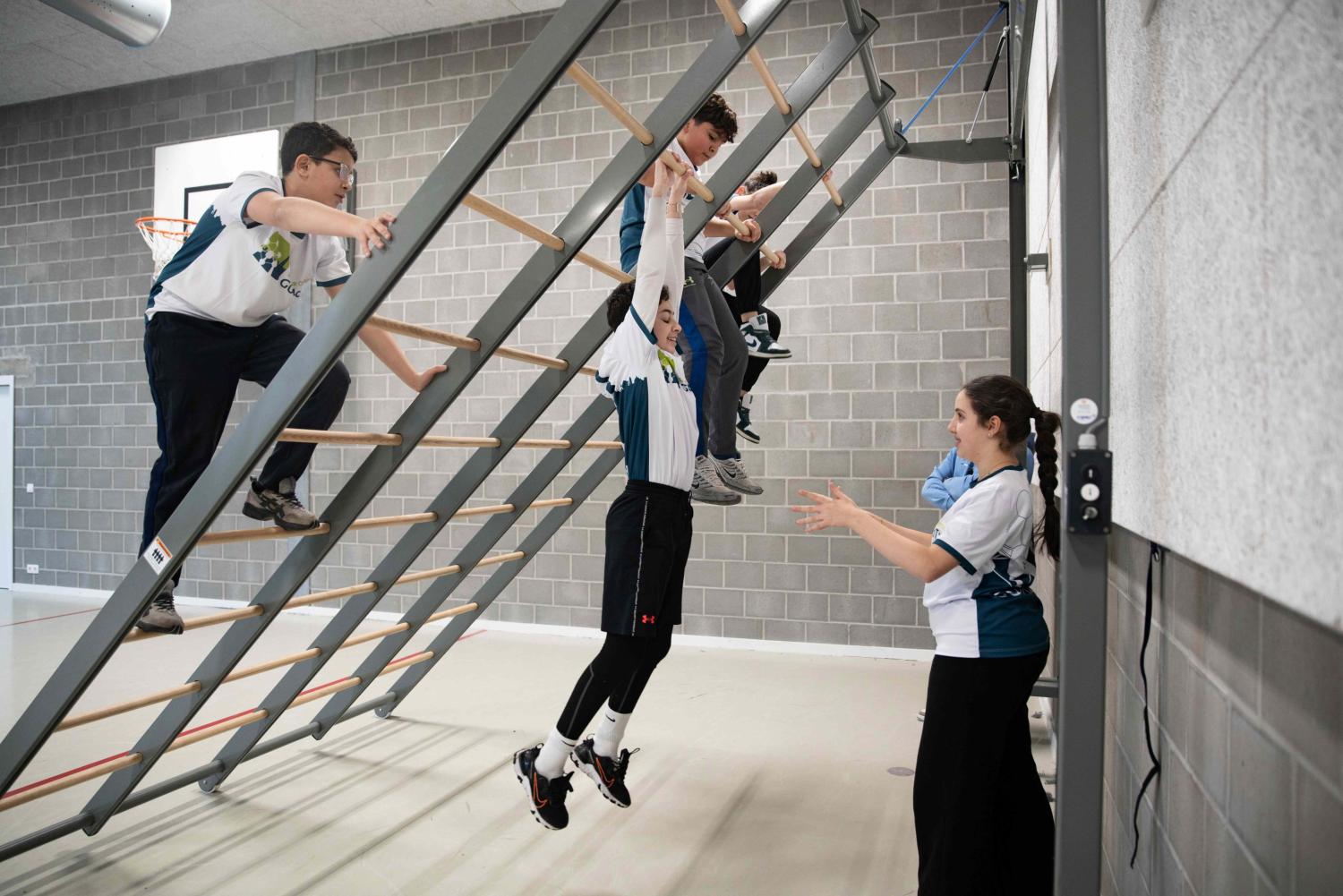
The GO!4 cITy Atheneum in Sint-Jans-Molenbeek adopts a new name: the GO! Caroline Pauwels Atheneum. This renaming pays tribute to the late rector of the Vrije Universiteit Brussel (VUB) and introduces a new educational project centred on urban education. The initiative embraces diversity as a strength, aiming to create more opportunities for all student groups—a vision that aligns perfectly with Caroline Pauwels’ ideals.
Why the Name Change?
Bastiaan Libeer, the school’s director, explains: "Over the past four years, in collaboration with VUB, our school has undertaken an intensive search for what strong education means to us. The result is a new educational project built on three core values: connection, curiosity, and student empowerment. The new name, ‘Atheneum Caroline Pauwels,’ not only reflects our principles but also embodies ambition. As a school, we are committed to continuous improvement. Through visible elements such as a dedicated Caroline Pauwels classroom, inspiring quotes, and artwork, we aim to immerse students in her story.”
Els Consuegra, senior lecturer in teacher training (MILO), adds: "The collaboration between our teacher training programme and the school team is a fantastic example of what urban education entails. A major city like Brussels offers countless opportunities to form partnerships with local organisations and knowledge institutions like VUB. However, academic insights do not provide a ready-made formula that can simply be applied in the classroom. In a highly diverse setting, translating theory into practice can be quite complex. It requires intensive cooperation and a shared sense of curiosity.”
The renaming and the educational project aim to create a more inclusive, innovative, and dynamic learning environment that reflects both the diversity of the city and the legacy of Caroline Pauwels.

Bastiaan Libeer
"A student who asks questions is a blessing. That is the attitude we want to encourage"
As an Inquiry-Based School, You Put ‘Curiosity’ into Practice. How Do You Encourage This in Students?
Bastiaan Libeer: “Curiosity is like a muscle—you have to train it. It can be sparked by something as simple as a spectacular classroom experiment, but it is also the foundation of learning. A student who asks questions is a blessing, and that is the attitude we want to encourage. In the first year of secondary school, we focus on prompting concrete questions. As students progress, we guide them towards forming hypotheses, preparing them for higher education. But fostering curiosity goes beyond simply asking logical questions—it also strengthens empathy. And empathy is the foundation of ethical thinking.”
Els Consuegra: “Curiosity also means exploring different perspectives. That includes addressing sensitive topics rather than avoiding them. A bit of friction can be highly constructive—it’s far more dangerous to push issues into the realm of taboo or to simply ‘agree to disagree’ without deeper engagement. Critical questions and diverse viewpoints challenge students to reconsider or refine their own opinions. That is precisely what Caroline Pauwels’ vision stood for.”

Why Is Diversity Often Seen as a Challenge?
Els Consuegra: “Many schools in suburban areas are seeing their student populations change and are realising that their traditional approaches no longer work. If teaching materials don’t reflect students’ lived experiences or prior knowledge, the risk of disengagement and disruptive behaviour increases. The dominant narrative often suggests that we should ‘revive knowledge’ and return to the so-called essence of teaching—without considering diversity awareness. But that’s a false dilemma.
My father is from Latin America, and what I learned at school about Columbus’ voyages of discovery completely contradicted what I heard at home. That kind of disconnect has an impact. You can cling to a rigid curriculum, or you can encourage students to explore different perspectives and sources that resonate with their migration backgrounds—perhaps even in their home languages. That’s not only challenging but also enriching, both in terms of knowledge and language. It raises the bar while being diversity-sensitive at the same time.”
Bastiaan Libeer: “Diversity is an ongoing reality at our school. I truly believe in the richness of Brussels’ multicultural context. Yes, diversity brings differences, but it also offers incredible opportunities—it’s up to us to recognise them. We want to be a welcoming school that connects with students and highlights skills that are harder to measure, ensuring that young people feel empowered in their talents and in society.”
"When students feel at home at school, the school's values become part of their identity"

Els Consuegra
Does Brussels Face Different Challenges Compared to Other Cities Like Antwerp or Ghent?
Els Consuegra: “Many challenges are similar, but Brussels has a more complex linguistic landscape. In cities like Antwerp, children from ethnic minority backgrounds usually speak a different home language, while those from more privileged backgrounds tend to speak Dutch at home. In Brussels, French adds another layer to this dynamic. Multilingualism here is more intense and intersects in various ways with socioeconomic status. In many classrooms, hardly anyone speaks only Dutch at home—whether they come from a privileged expat family or have just arrived in Belgium as a refugee.”
What Opportunities Does Multilingualism Offer?
Bastiaan Libeer: “Dutch is crucial. We need to prepare our students for higher education, which requires a well-thought-out approach, including extra support, tutoring, shared reading exercises, and resit exams. We set high standards, but that’s very different from banning other languages. A strong foundation in one’s native language is essential for learning additional languages. So, multilingualism can actually be an asset. When our students need to grasp key concepts, we provide an extra text column in their native language to support comprehension.”
Els Consuegra: “Research shows that using a language a student already knows can be beneficial when learning a new one. Yet, in Flanders, this remains a highly sensitive topic. Mastering Dutch is, of course, extremely important—it grants access to increasingly complex lessons as students progress in their education. But children are not helped by having their home language dismissed as an obstacle to learning Dutch. That’s simply not how language acquisition works.”
How Do You Maintain High Educational Standards?
Bastiaan Libeer: “The declining trends in Dutch and maths proficiency concern us as well. The situation is too complex for black-and-white solutions. We make a difference by focusing on study skills. Everyone knows how important planning and learning strategies are, but how do you apply them in practice? That’s one of the key areas we’re developing with VUB. We make ‘learning how to study’ concrete. Classroom coaches help with general skills like planning, and within each subject area, we establish clear agreements so that all teachers promote the same study methods. After all, learning a language is very different from learning maths or history.”
Els Consuegra: “In an ultra-diverse context, it’s even more valuable to explicitly focus on these skills. Many of these children grow up in families with low levels of formal education, where parents may be less familiar with what studying entails. We see that ‘pioneer students’—those who are the first in their family to pursue higher education—often lack the same academic support and study skills as their peers.”

How Do You Get Everyone on the Same Page?
Bastiaan Libeer: “A survey of our teaching staff thankfully showed strong unity. Our school has a culture of constantly striving for improvement. To excel, you have to focus on growth. We place great importance on professional development that goes beyond informal discussions. What will you adjust in your next lesson? What can be improved? We look for teachers who dare to question themselves. Doubt should lead to an inquisitive mindset that drives progress, not to uncertainty. Be emotionally positive, but rationally critical.”
Els Consuegra: “At the Olympics, you see top athletes reviewing their performances with their coaches right after competing. If you want excellence in education, you need a similar approach. That’s what we do with the Videoclub project, funded by Leerpunt: teachers record their lessons and then analyse them with colleagues. In Flanders, teacher professionalisation and collaboration often take place in a somewhat isolated culture. Connection is crucial for both teachers and schools to grow. What remains underused is the link with partners outside the school walls. Some challenges are so complex that schools simply cannot tackle them alone. Especially in a super-diverse area like Molenbeek, collaboration with external partners is essential.”
Where Do You Hope to Be in a Few Years?
Bastiaan Libeer: “I hope our students won’t just know who Caroline Pauwels was but will also embody her values. That they will ask questions, engage with the world openly, and transition confidently into higher education with strong study skills and high expectations. I realise these are qualities closely tied to personality traits, which might seem ambitious, but I truly believe it’s possible.”
Els Consuegra: “The groups we belong to help shape our identity. When students feel at home at school, the school’s values become part of who they are. A school cannot solve all societal problems, but small, meaningful changes do have an impact. As former VUB rector Paul De Knop once said: ‘Optimism is our moral duty.’ Even in difficult situations, as professionals, we have an obligation to keep looking for possibilities. This isn’t a sprint—it’s a marathon. A sustained effort where you keep making progress, year after year.”

